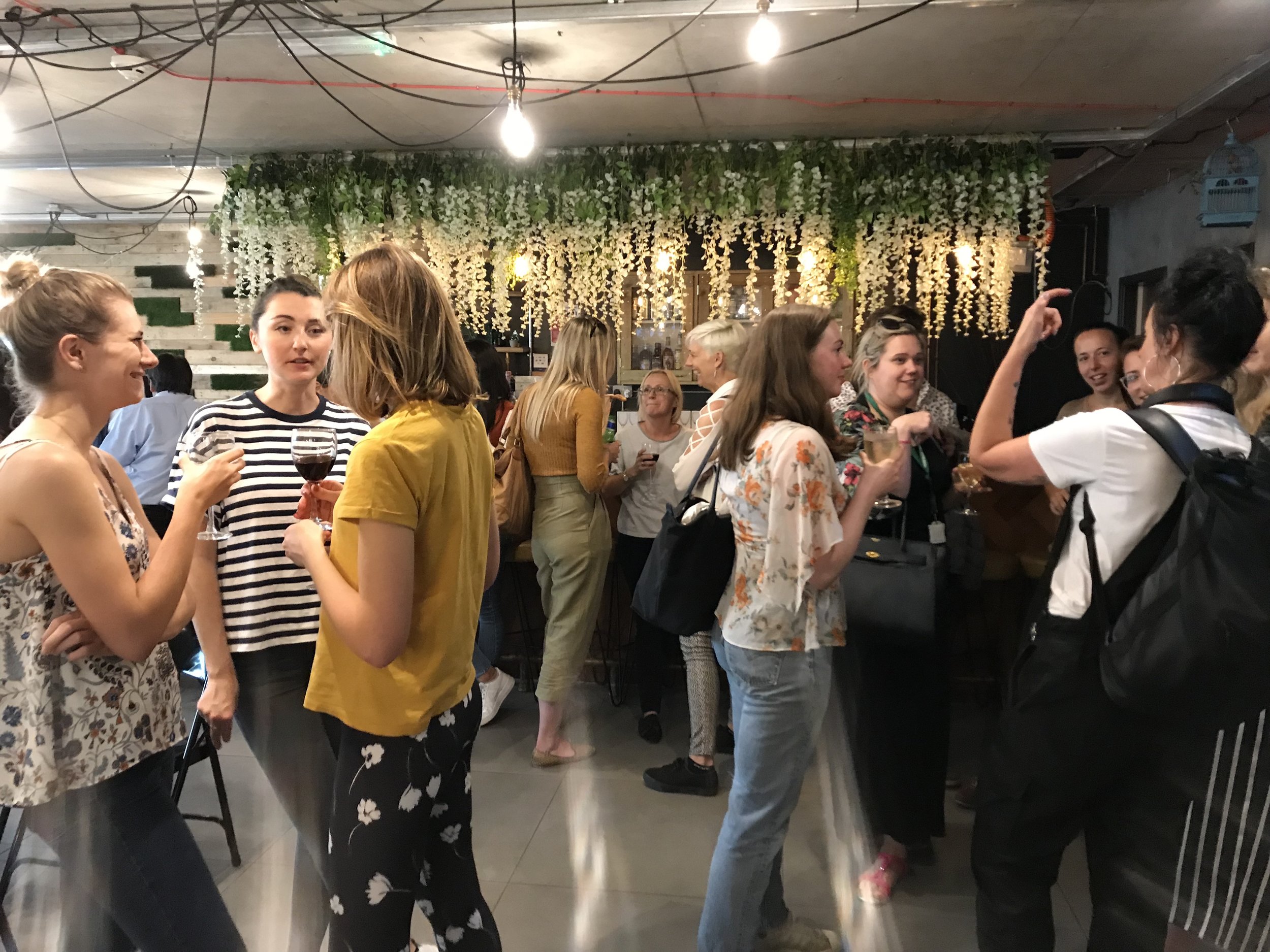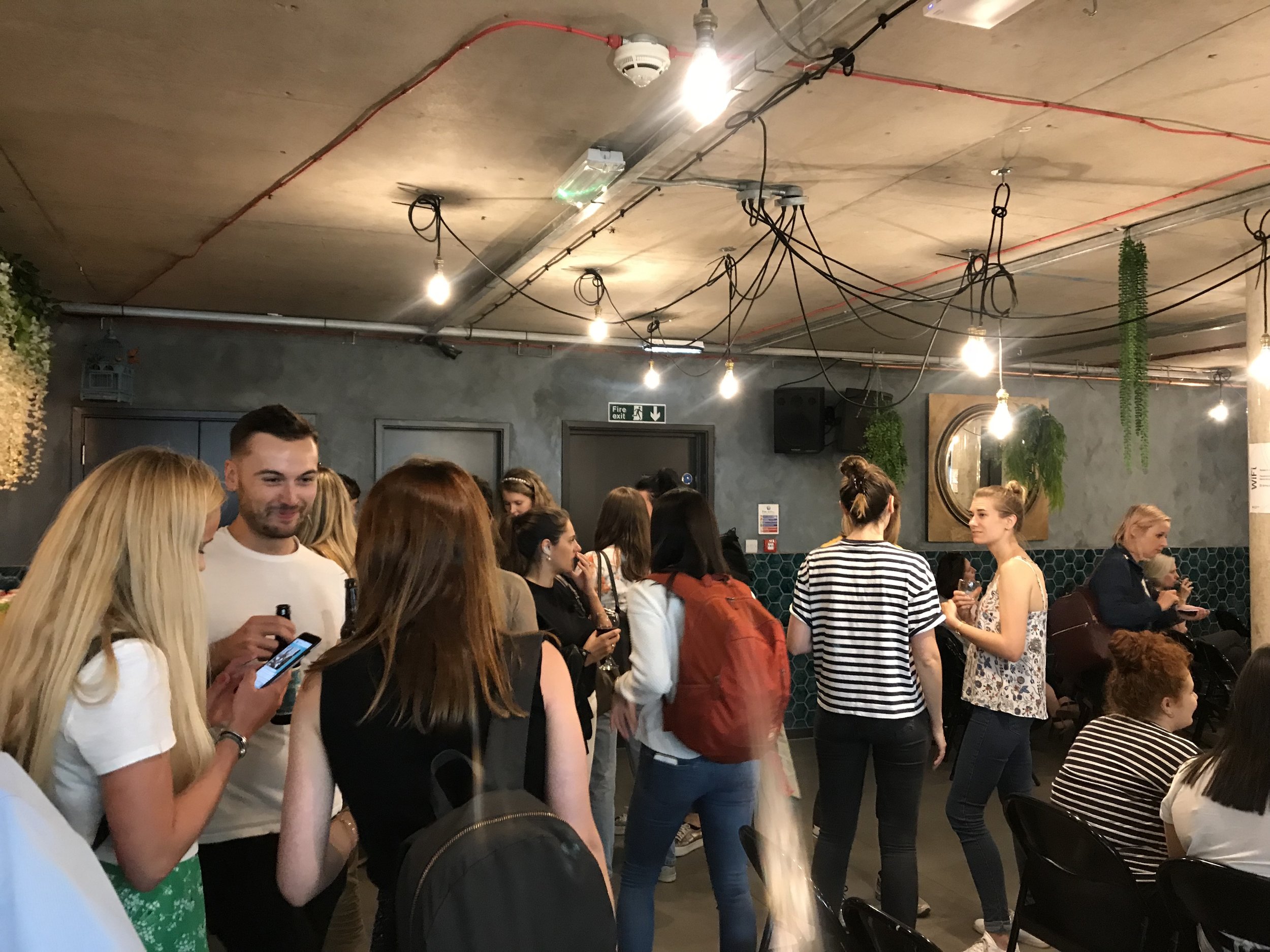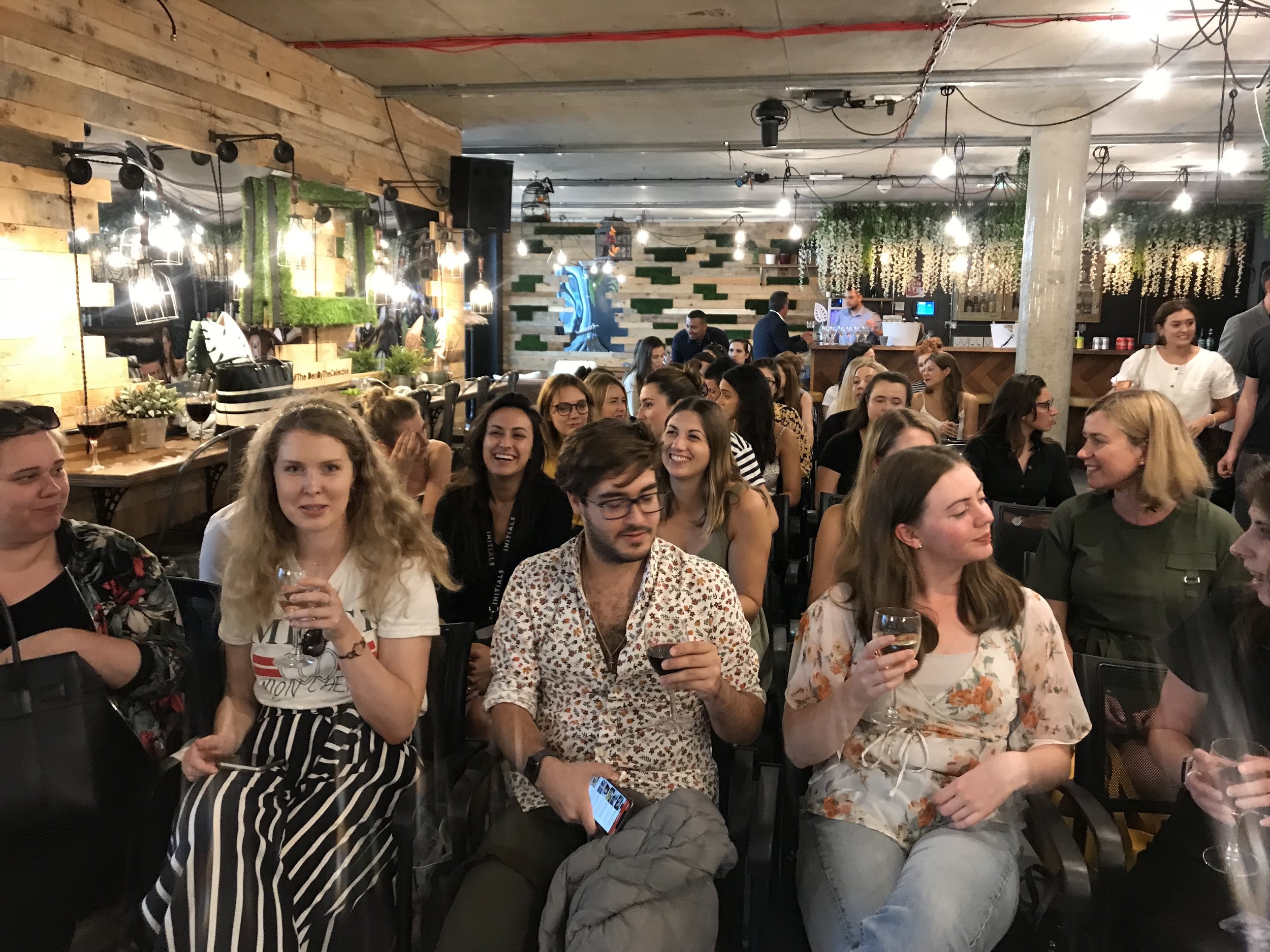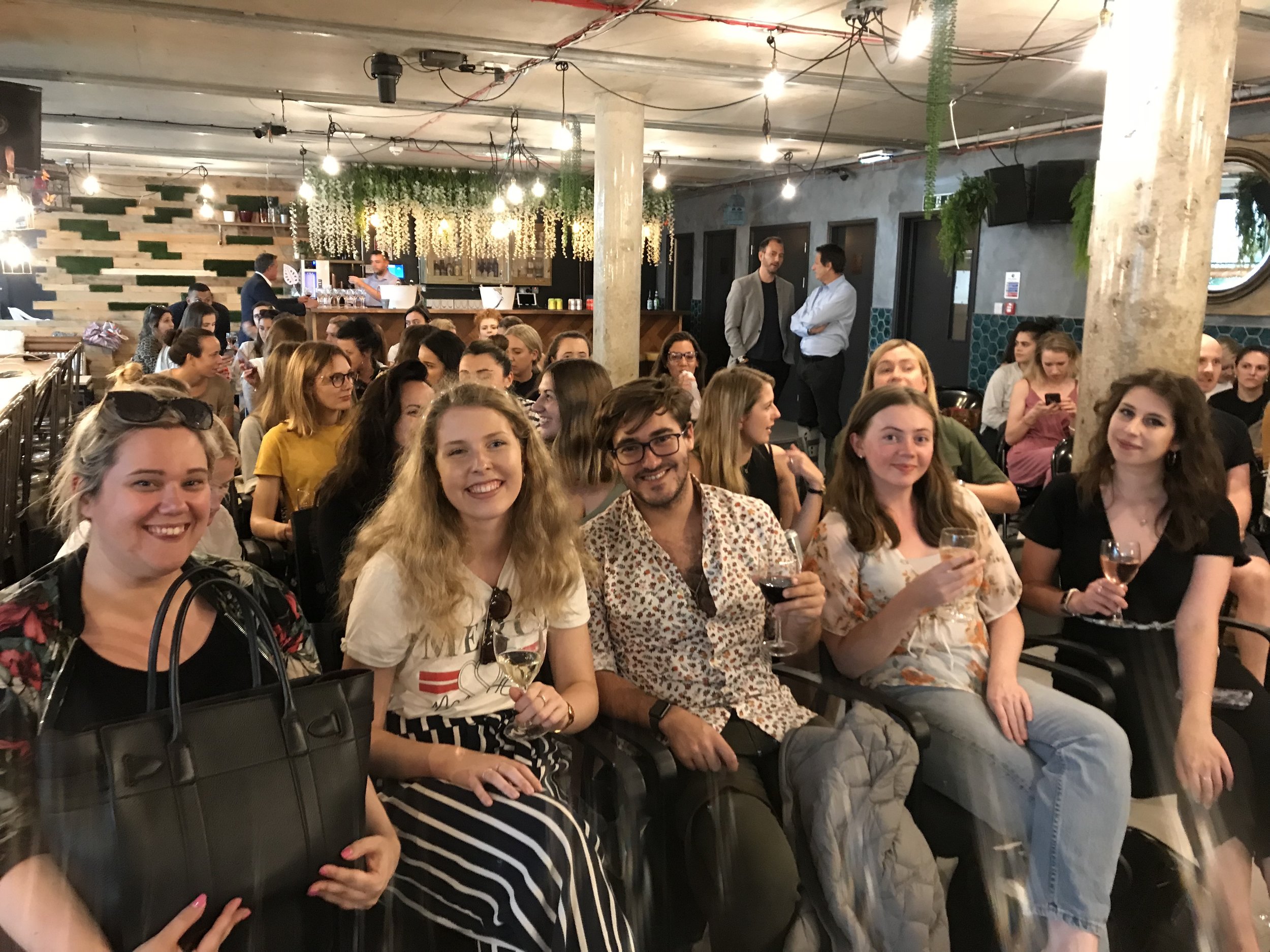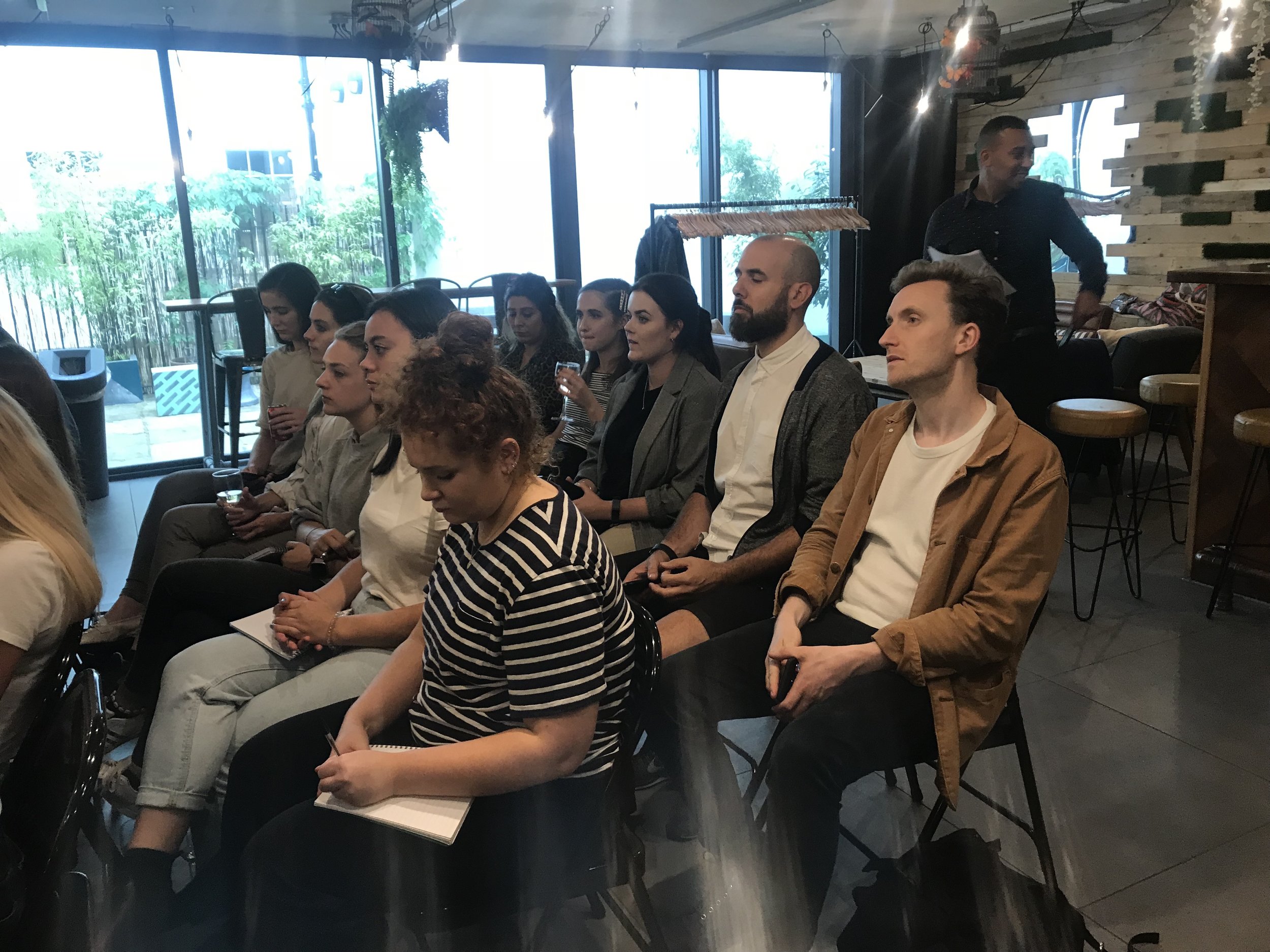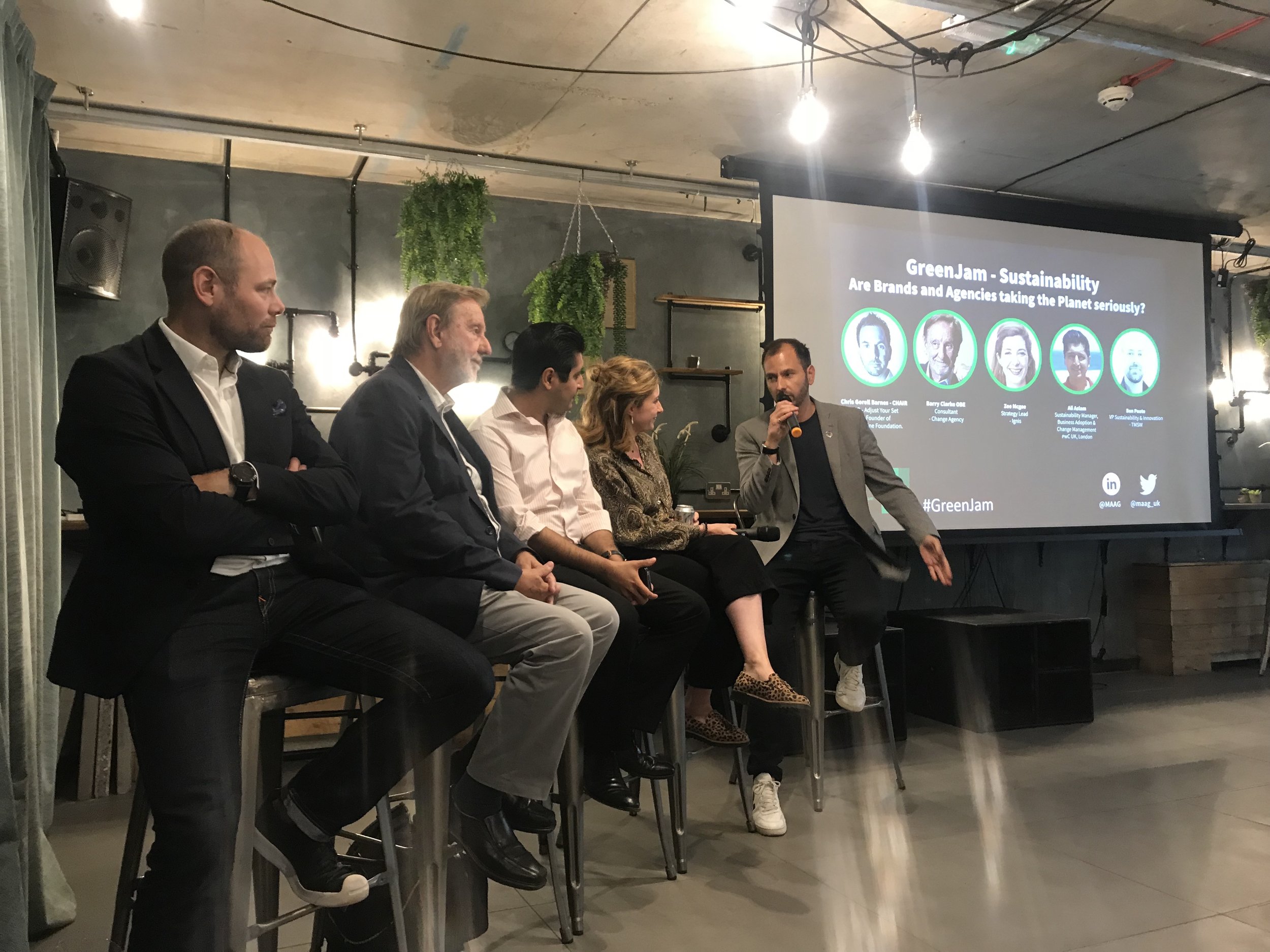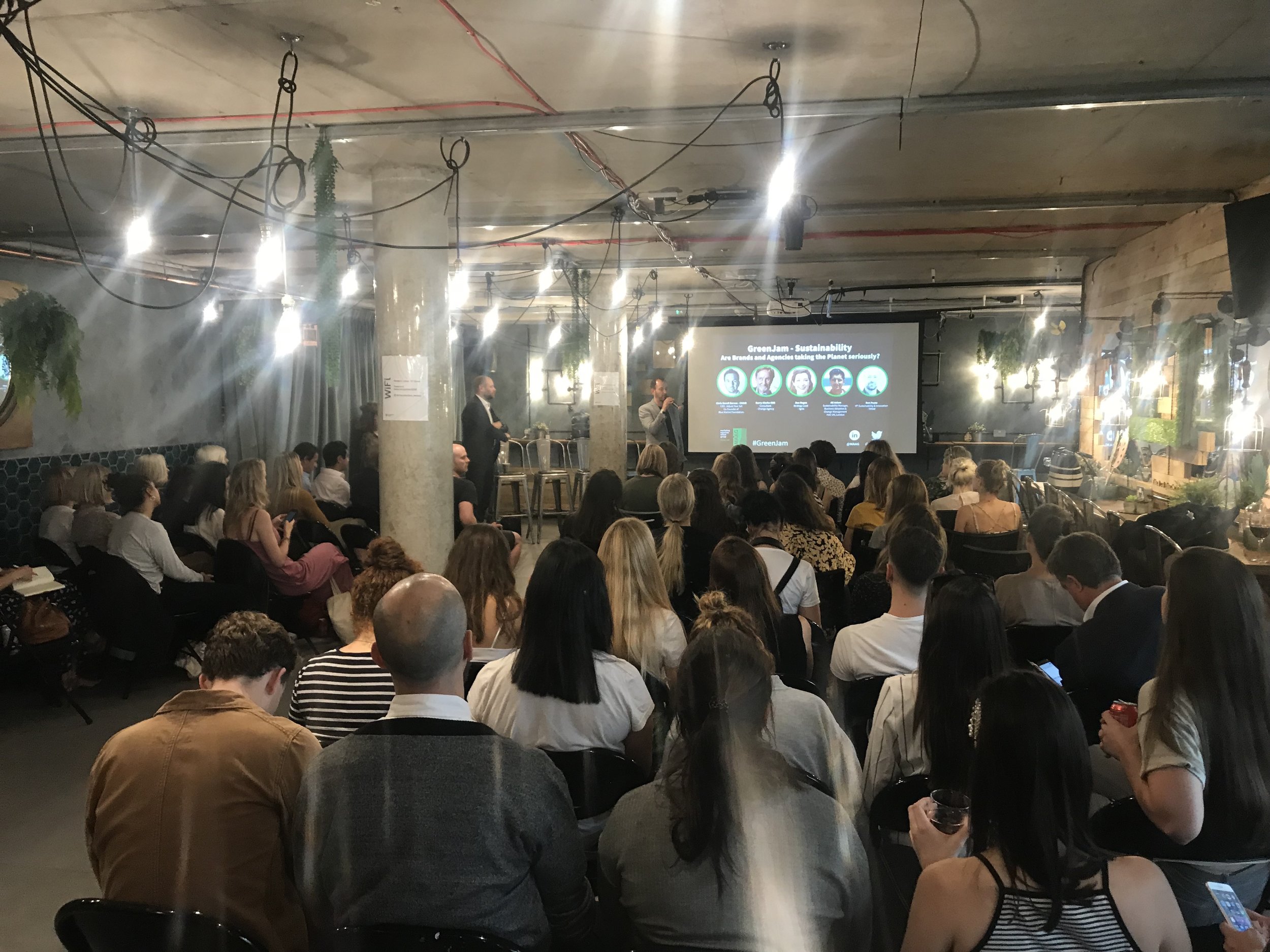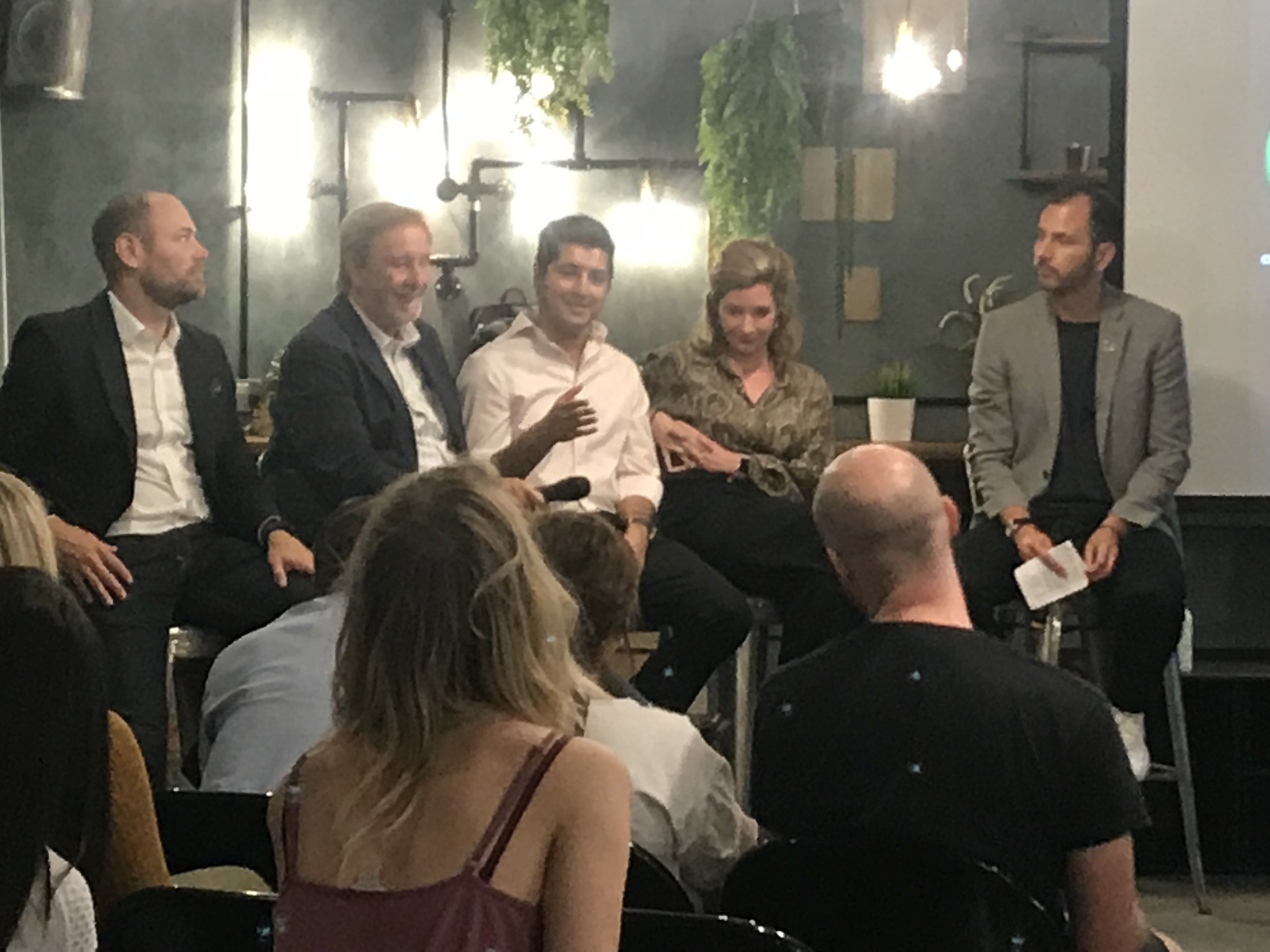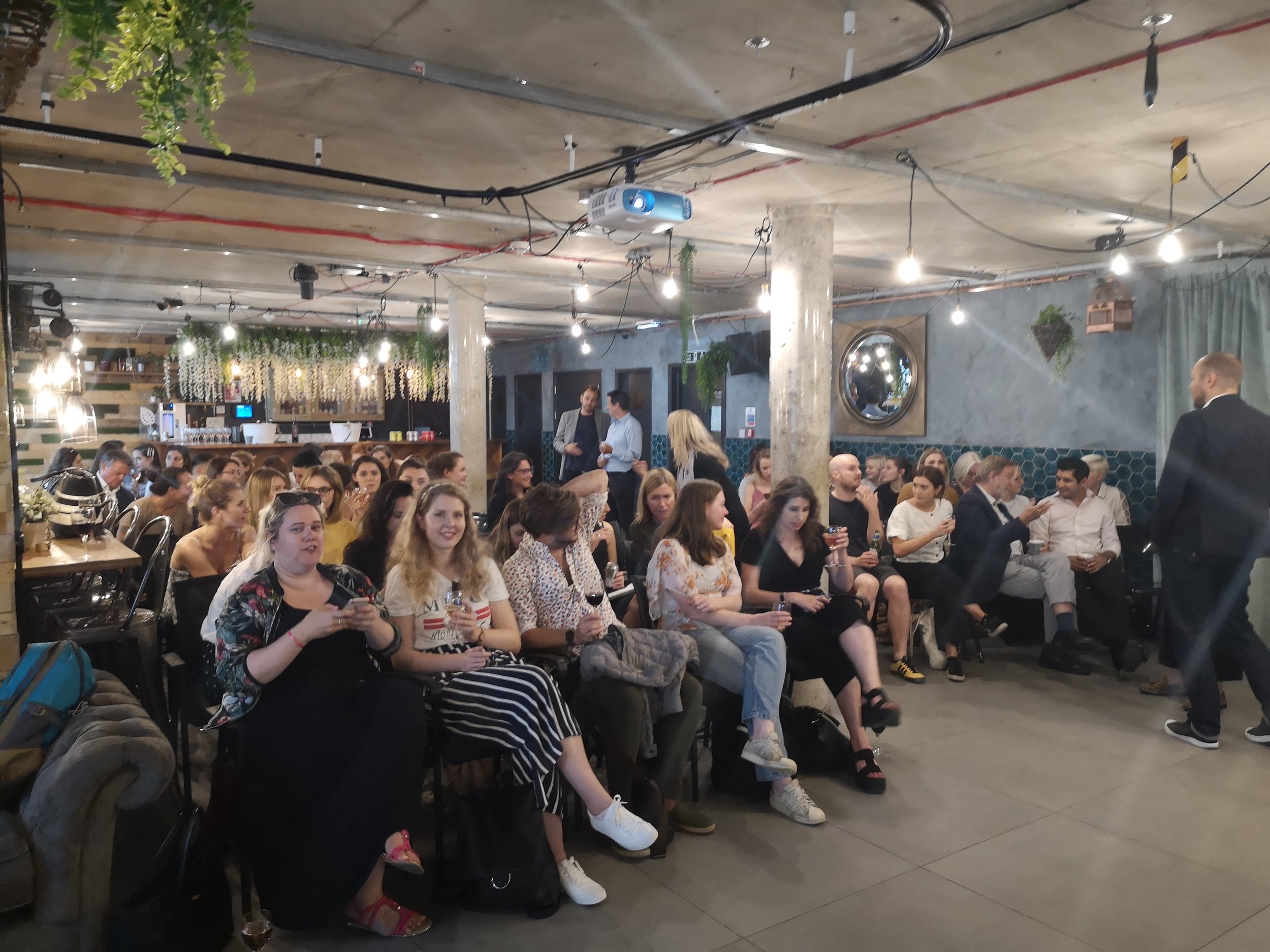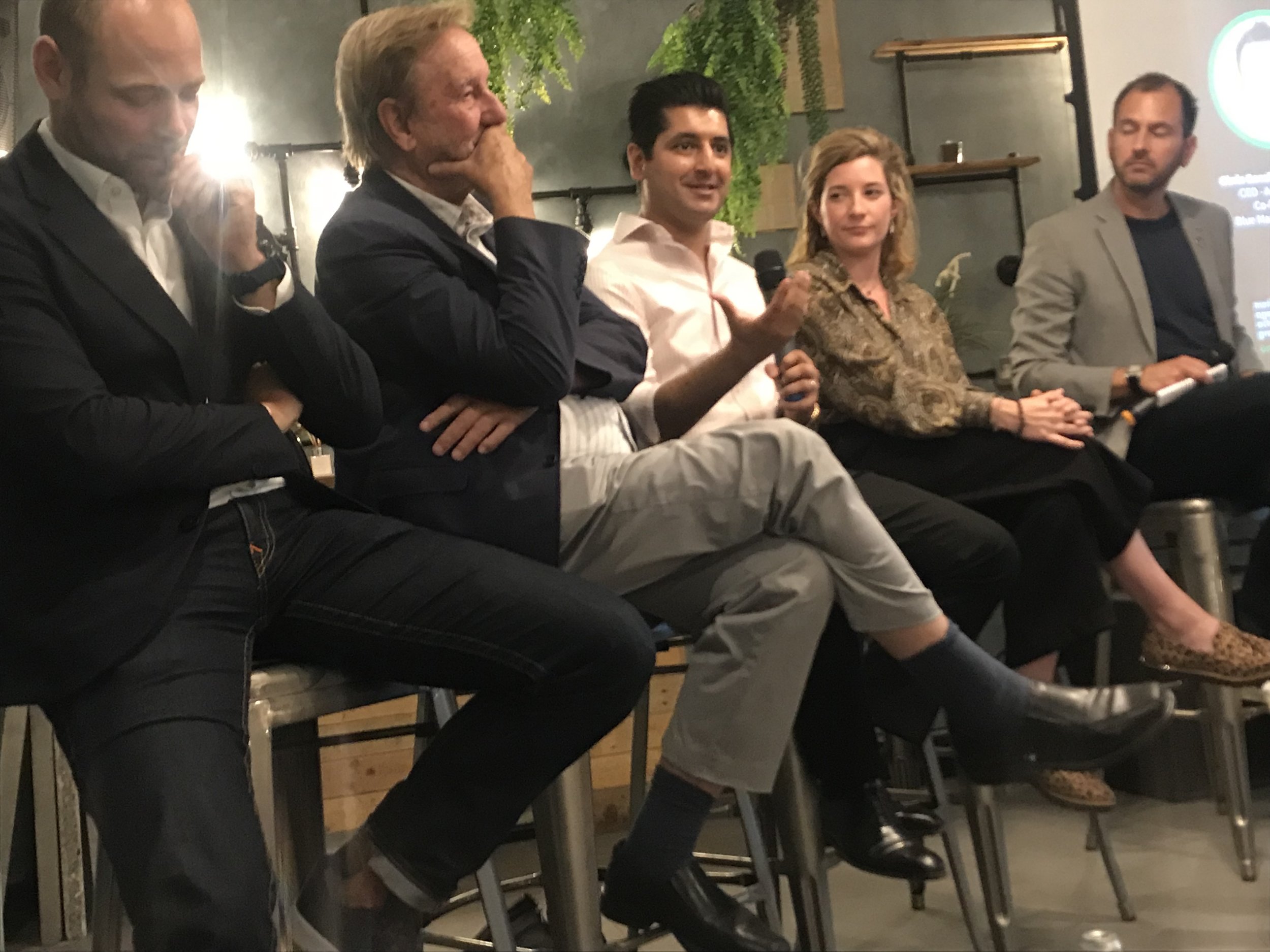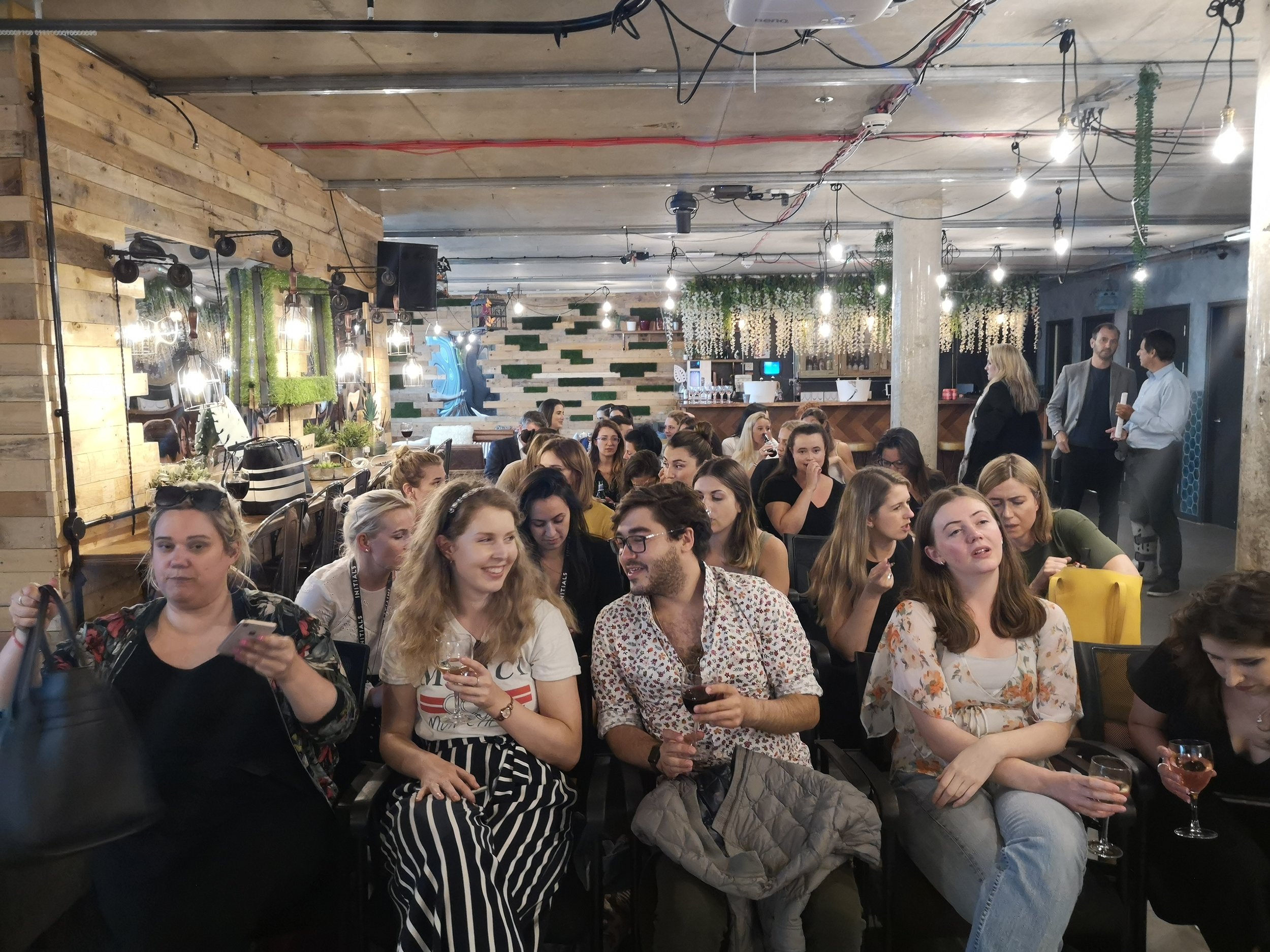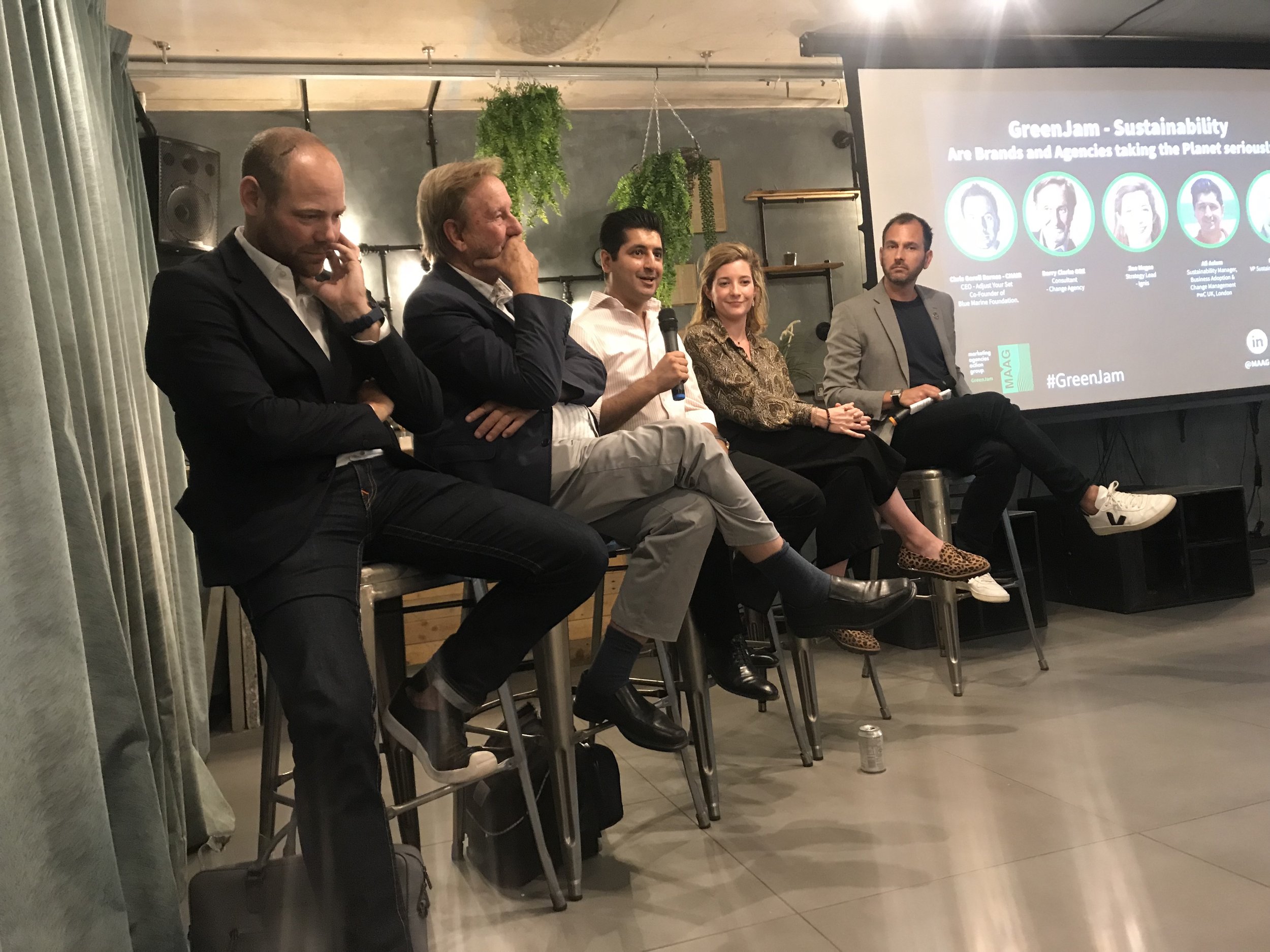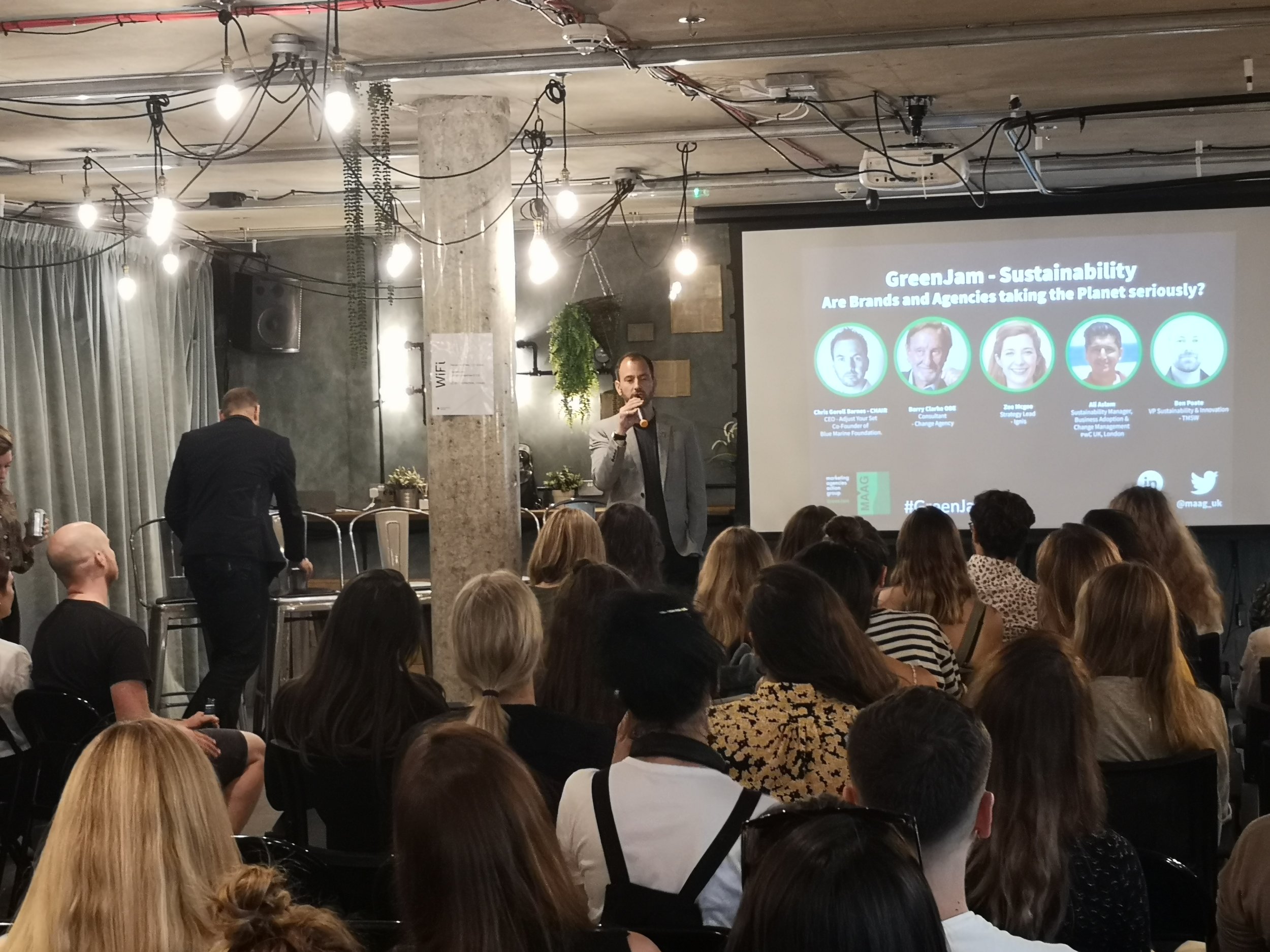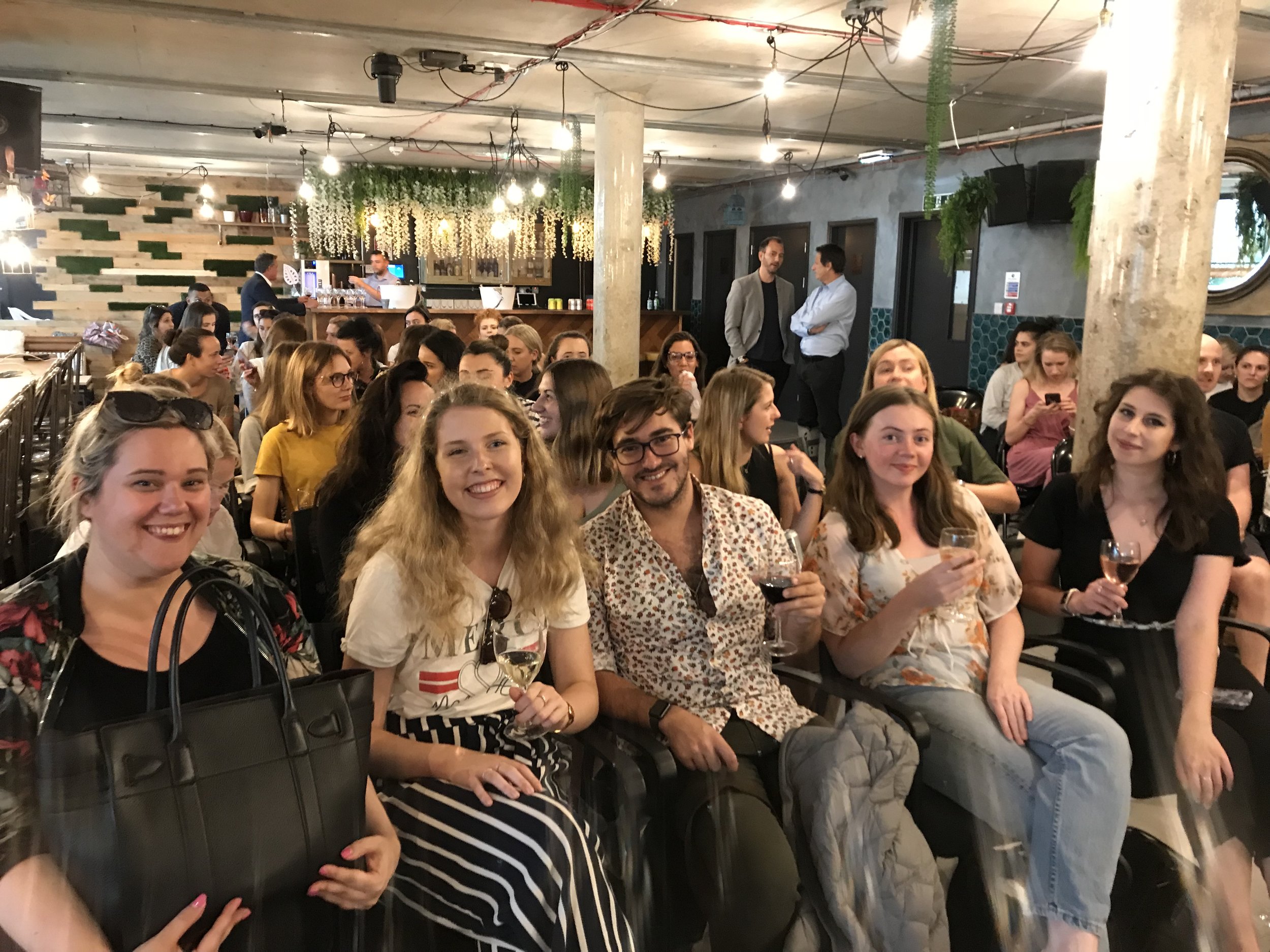GreenJam: Are brands and agencies taking the planet seriously
MAAG’s August GreenJam saw its highest event attendance to date, with over 60 marketing professionals from 27 agencies descending on The Collective to hear our panel discussion, “Are brands and agencies taking the planet seriously?”
With a focus on sustainability, the event was hosted by Chris Gorell Barnes from Adjust Your Set. The GreenJam panel consisted of Ben Poate from The Marketing Store, Barry Clarke OBE from Change Agency, Zoe McGee from Ignis and Ali Aslam from PwC.
A range of environmental business issues were discussed, from the importance of fairly-traded coffee in protecting the Amazon rain forest, to the destructive nature of the global cotton industry. Barry Clarke explained the importance of the United Nations Sustainable Development Goals, an ambitious framework to improve the world within 15 years. The Sustainable Development Goals will require the commitment of both the general public and businesses if they are to succeed.
Ben Poate talked about the growth in interest from marketing services clients in sustainable business solutions. His client McDonalds, for instance, has tried to align their activities against the UN’s Sustainable Development Goals, including creating their platform, ‘Scale for good’ to promote environmentally responsible practices within their business.
Barry Clarke made the point that sustainability and protecting the earth should be such a moral and emotive issue that if agency personnel aren’t comfortable working with a client or brand whose sustainable values do not match their own, they should refuse to work with them.
He equated this issue to when he was running a successful agency in the 1980s, where some staff refused to work on cigarette or alcohol brands – including some that they delivered award winning work for - without it impacting upon their careers.
Fast fashion was presented as one of the most environmentally destructive of industries. H&M was highlighted by Barry as one of the exceptions to this, which is deeply committed to improving land and forests as part of its corporate strategy.
Ali Aslam highlighted the dangers of clients engaging in ‘Greenwashing’ – where businesses convey that they’re more environmentally conscious than they really are – which potentially has reputational and financial implications. The lack of transparency in carbon emission reporting, for instance, means that some retail businesses can under-report their carbon emissions by excluding their goods from the reported figures. Future carbon emissions taxes will bring greater scrutiny to this area, as investors will need to hold businesses to account, with failure to comply resulting in reduced profitability.
Zoe McGee emphasised that sustainability isn’t just a marketing issue for businesses – climate change and the environment affect all of us. To create positive change, we need to put pressure on the government as well as businesses; businesses will be forced to change when government policy supports the sustainability agenda.
Chris Gorell Barnes pointed out that the UK is in a position to lead on climate change goals. The biggest fix for climate change is potentially nature, through restoring forests, mangroves and sea grass, including businesses offsetting their carbon footprints through planting more trees. Without it we have environmental crises coming: riving sea levels and extreme weather events.
Audience discussion included the need for food producers to tell people where food is sourced from, so that they are aware of the carbon footprint of their food before they buy.
Ultimately marketing agency professionals have a great opportunity to promote sustainable business practices. The skills that have been used in the past to drive consumption – communication, strategic planning, promotional techniques – are the same skills that can be used to diminish future consumption, and build a more sustainable world for us all.
The GreenJam audience is primarily made up of marketers with less than five years’ agency experience, and as a result attendees are mostly aged under 30. So their values around sustainable and environmental issues are likely to be more acutely felt by them than their agencies’ boards. Against this background, MAAG and the panel have agreed to re-run the event, but direct it exclusively at senior agency personnel - which underlines how GreenJam is a fast becoming a wonderful source of ideas for reverse mentoring.
